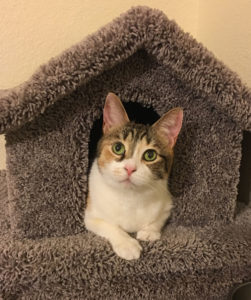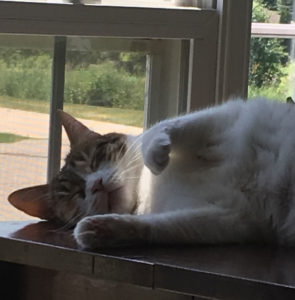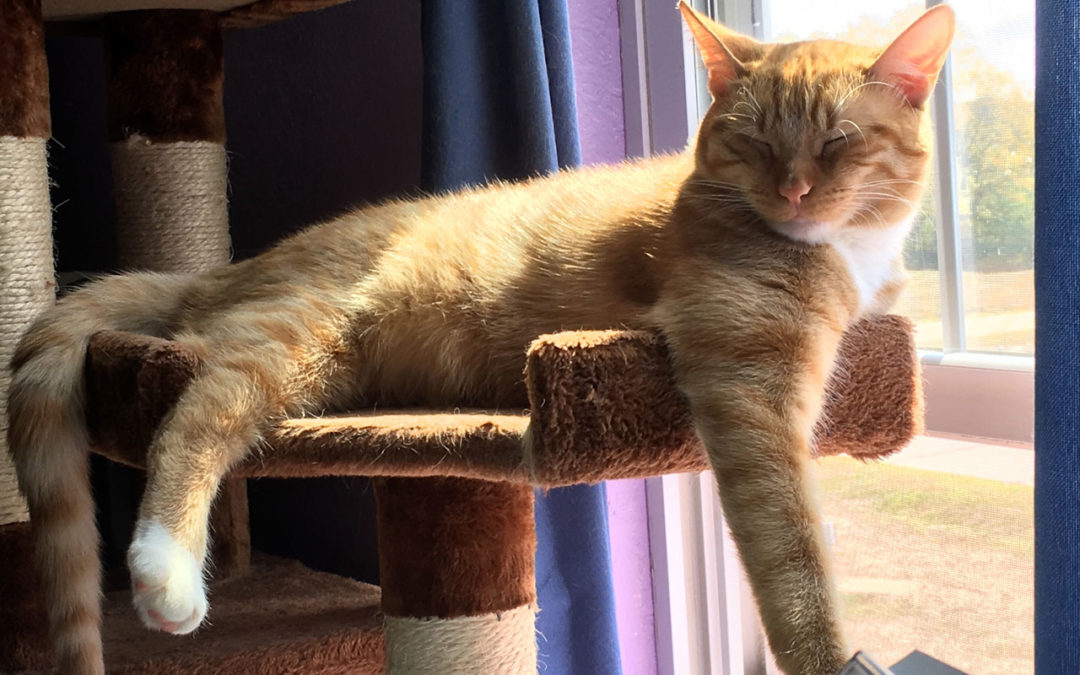Feline Immunodeficiency Virus (FIV) was first recognized in cats in the late 1980s. Cats were showing signs of illness related to an impaired immune system, similar to illnesses seen in people with human immunodeficiency virus (HIV). FIV and HIV are in the same family of viruses. Fortunately, these viruses are species-specific, meaning cats can’t give humans FIV and humans can’t give cats HIV. There is unfortunately no cure for FIV, and once infected, the cat will carry the virus for the remainder of its’ life.
The virus is usually transmitted through bite wounds and can be passed from an infected mother to her unborn kittens. The virus is found in blood, saliva and spinal fluid of infected cats. The virus is not able to survive long outside the body and does not survive in the environment. Transmission through close contact occurs very rarely. Therefore, it is not necessary to isolate a FIV positive cat from other cats in the household.

Once infected, your cat’s white blood cell count declines, causing the immune system to not function normally. Many cats will show no symptoms for many years. If symptoms occur, they are usually due to secondary infections and chronic conditions. Symptoms that may be seen include:
- Inflammation in the mouth (gingivitis)
- Diarrhea
- Fever
- Respiratory infections
- Poor coat condition
- Weight loss
- Loss of appetite
With routine wellness exams to detect problems early and exposure to other infectious disease is limited, many cats can live a long life.
The best way to prevent infection is to limit exposure to infected cats by keeping your cat indoors. FIV vaccine is available but not currently recommended for all cats. Not all cats will be protected by the vaccine. The test currently run to check for FELV and FIV can show a vaccinated cat to be positive for FIV, so it is important to make sure your veterinarian knows your cat has been vaccinated when testing is performed.
If your cat does test positive for FIV it is important to work with your veterinary team to create a plan to keep your cat healthy for as long as possible by monitoring routinely for weight, general health and any symptoms of illness. Vaccination for other diseases should be discussed with your veterinarian as there is some evidence that vaccination may activate the FIV virus. It is best to keep your cat indoors to prevent spread of the virus to other cats and to reduce the exposure of your cat to infections. A good diet and prevention of both internal and external parasite is very important.

